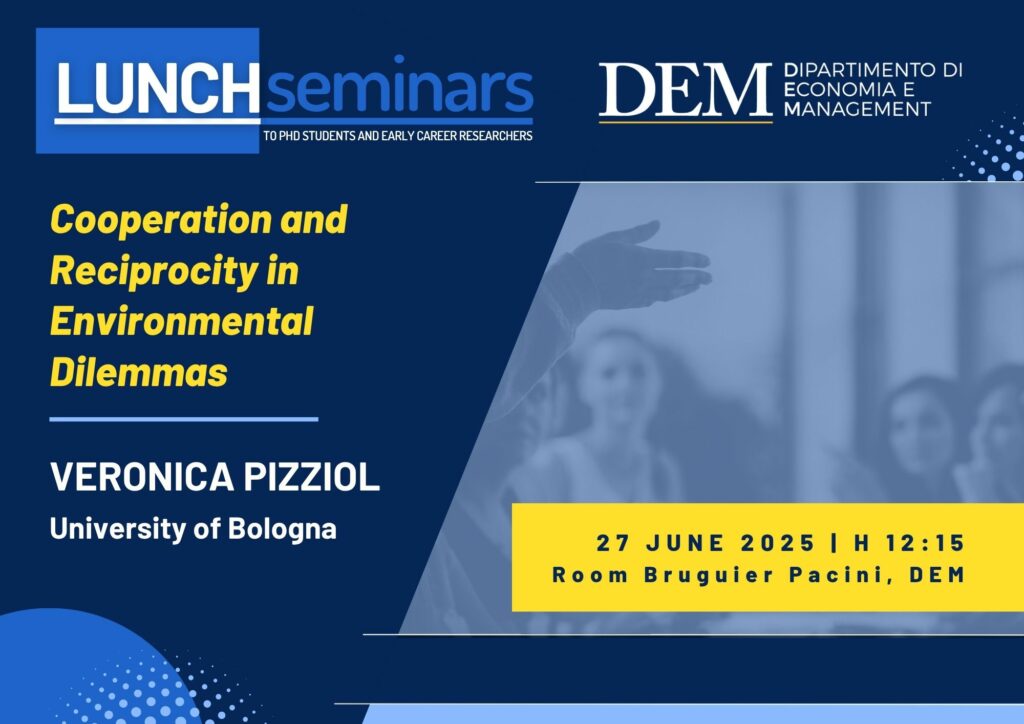Date: Friday, 27 June 2025, at 12:15 pm
Venue: Seminar Room Bruguier Pacini, DEM
Speaker and Title:
Veronica Pizziol (University of Bologna)
Cooperation and Reciprocity in Environmental Dilemmas
Abstract:
This paper investigates how different framings of environmentally relevant social dilemmas affect cooperative behavior, beliefs, and reciprocity. We designed a large-scale online experiment (N = 1,247) in which participants were randomly assigned to one of four one-shot, anonymous decision environments: (i) a Provision Public Goods Game (PR), (ii) a Maintenance Public Goods Game (PM), (iii) a Polluting Others game (PO), and (iv) a Polluting All game (PA). While all four decision situations are payoff-equivalent, they vary in the nature and framing of individual actions – particularly with regard to how the consequences of those actions are described. The PR condition uses a standard contribution frame, while the remaining three situations involve actions with different externalities imposed on others (or including the self). In addition to measuring cooperation through actions in the games, we elicited incentivized beliefs, conditional cooperation profiles using the strategy method and Social Value Orientation (SVO). We find significant differences in action levels across conditions, with PR displaying the highest cooperation and PM, PO, and PA displaying significantly lower levels of cooperation. Notably, PO and PA – despite differing in the scope of the externalities – have statistically indistinguishable cooperative behavior. We also find that conditional cooperation is more prevalent in the PR treatment, consistent with the idea that participants respond more reciprocally in contribution frames. Beliefs about others’ cooperation vary by condition, especially between PR and the others, and are predictive of individual behavior. Regression analyses confirm that both SVO and beliefs are significant drivers of cooperative behavior. Furthermore, participants’ conditional cooperation profiles, combined with their beliefs, help predict actual decisions in the one-shot games. Our findings contribute to the understanding of social dilemmas that resemble environmental contexts and the psychological differences in these scenarios.

